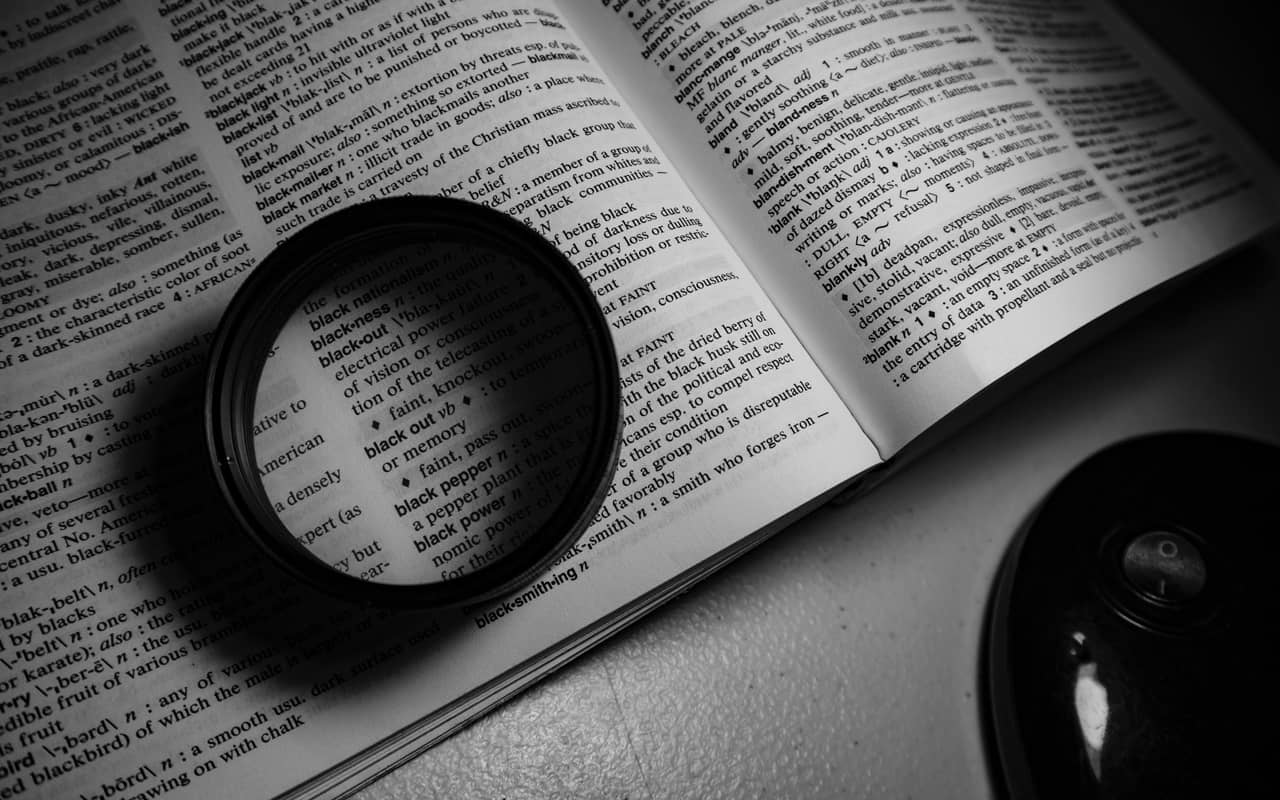 You hear people preaching about the benefits of reading all the time, but is it really true?
You hear people preaching about the benefits of reading all the time, but is it really true?
After all, there are also CEOs who talk about having ADHD and barely being able to focus on reading.
So… maybe you can skip it altogether?
The truth is that most of those CEOs can read. And they probably read really well – especially when it comes to the information that helps them succeed.
You want to know what really matters? It’s that you do not compare yourself to anyone else.
And when it comes to reading, the answer is clear:
Reading is beneficial for everyone. Even those who might not think so.
Here are all the reasons why you definitely want to read more, including tips on how to read more efficiently.
Why Is Reading So Important?
Reading connects us to each other. Deeply.
In fact, there would never have been an Internet if it weren’t for reading. One reason we’re able to communicate with each other today is because some clever people managed to create the first online discussion board.
And in case it’s not obvious, you can’t write to another person if you don’t also know how to read. Those early discussion boards relied on it and we still use variations on the earliest formats in discussion sections, Slack, etc.
Research also shows that reading makes us better citizens, largely because it helps us feel more empathy for one another.
In The Novel Cure: An A-Z of Literary Remedies, the authors discuss “bibliotherapy” and show many ways that reading can help cure a lot of our many ailments. The only problem was might still face is that there is so much to read and not enough time to do it in.
But that’s where my work on how to read faster and increase your focus while reading comes in handy.
Even better, reading is the most likely way to make yourself smarter. As Scott Young has demonstrated in Ultralearning, you can improve your education at a very low cost simply by reading.
8 Scientific Benefits of Reading That Can Change Your Life
When it comes to the science that supports how and why reading improves your life, there’s an abundance of it out there.
Let’s dig in and draw some principles from the research that will help you read more effectively and efficiently.
One: Reading Reduces Stress and Anxiety
According to research conducted by Margaret Kustritz, reading for leisure helped stressed out veterinary students cope better with the stresses associated with going to school for this topic.
She also had her subjects practice yoga, which has been shown to improve memory and concentration.
The best part?
Kustritz notes that reading costs very little compared to other alternatives. You can travel the globe by reading Around the World in Eighty Days by Jules Verne, for example. It’s in the public domain too, so you can read it for free online.
Two: Reading Improves Mental Focus and Concentration
Although you might be worried that reading may put you to sleep, that’s far from the case. Especially when you have a good places for doing your reading.
In Mind Change, Susan Greenfield explains why some people feel that playing games improves their memory. It’s actually a short-term memory benefit that comes from how the games involve moving multiple objects and dealing with other factors.
But the benefit of reading comes from following a story or line of argumentation and evidence without interruptions.
This is why researchers have been raising the alarm for a long time now regarding digital amnesia. Part of the problem has to do with how the sheer abundance of information narrows our “collective” attention span.
Another huge benefit has simply to do with the fact that we read differently from physical books. If we remove ourselves from the online distractions, we get more out of the books because we can’t distract ourselves by looking up words we don’t know and opening dozens of links.
So the key tip is to read at least 30 minutes a day from physical books without interruption. According to Greenfield, this is also a great way to ensure you develop your crystal intelligence, which helps you access information from your long-term memory.
Three: Reading Enhances Your Creative and Critical Thinking Skills
Want to be more creative?
Read more. It will help you observe how others do it. This is why Stephen King goes on at quite some length about how reading helped him in his career as one of the most successful authors of all time.
But people like King aren’t just creative. They are also epic problem solvers. That’s because when you read about the lives of others, and stories about people in challenging situations, you naturally pick up a number of problem solving models.
Nearly every book you read is like engaging in a powerful critical thinking exercise. The more you read, the more critical thinking examples you get, and the more critical thinking benefits.
Four: Reading Expands Your Worldview
One reason people struggle in life comes from limited perspective. They can’t imagine how things could be different because their view of the world is small.
Books make your world so much larger. Read more and be sure to include a variety of different kinds of books to enjoy this particular benefit. Having a re-reading strategy is very useful too.
This is because of all the major benefits of reading, re-reading helps you expand your perspective on each book you go through a second time. Even with the most powerful note-taking strategy, you will still not notice certain details, largely due to memory biases and effects from state dependent memory.
Five: Reading Boosts Your Vocabulary
There are two direct ways to boost your vocabulary:
- Memorize words using memory techniques
- Read frequently
When you read frequently, you’ll bump into a wide variety of words much more often. Consistent reading provides you with a natural form of spaced repetition as a result.
I often come across words I don’t know when reading. In order to not break the flow, I use the index card method I shared with you in how to memorize a textbook.
It’s easy to use an index card (or flash card if you prefer) as a bookmark. That way, you can quickly jot down the page number and the word you don’t know and keep reading.
Later, you can memorize those words and when you encounter them again, two things can happen:
- You now recognize the word and understand what you’re reading better
- You encounter the word being used in a different way and come to enjoy greater nuance in the language
Pro-tip: When looking up word meanings, go beyond the dictionary. Look at the etymology as well for even more benefits that lead to greater knowledge about the history and workings of your mother tongue.
Six: Reading Improves Academic and Career Success
So far we’ve seen what boils down to many mental training benefits from reading.
But you might be thinking…
“Show me the money!”
No problem. How about a little story?
When I completed grad school, I easily got teaching jobs and a Mercator, one of Germany’s biggest grants. This grant was approximately the size of my student loans, almost instantly turning my educational investment into profit.
It would have been impossible for me to get any teaching jobs or win that grant if I hadn’t done the reading.
That’s just my experience, but scientists in The Economic Journal have studied this topic closely. They found that the number of books young people read correlates with higher levels of wealth throughout life.
Thomas Corley, author of Rich Habits found that 85% of wealthy people read two or more self-improvement or books related to excelling in their professions per month.
And of course, Warren Buffett, one of the most successful investors of all time, has famously advised, “Read 500 pages a day. That’s how knowledge works. It builds up like compound interest.”
This approach has certainly always worked for me, which is why I constantly read as many books about the Memory Palace technique as I can. It keeps me sharp and improves my usefulness to those who follow the Magnetic Memory Method blog.
Seven: Reading Entertains You
This one is kind of obvious, but still worth mentioning.
And not only does fiction give you a thrill.
It can be incredibly entertaining to learn about the biographies of a wide variety of people.
I’m reading all about Dr. Seuss at the moment, and the many stories about his family and how they survived during wartime and depression are incredibly gripping.
The drama not only provides a diversion, but does what all good stories do. Reading reminds you that others have gotten through tough times, and so can you.
This is one of the key points made by Lisa Cron in her science-driven study, Wired for Story. Being entertained by reading literally helps our species survive.
Eight: Reading Improves Your Memory
Reading starts improving your memory by engaging working memory and leveraging psychological aspects of cognition like chunking.
When reading a novel, your brain gets a workout by juggling plot details, names of people and places and aesthetic details like mood and atmosphere. You may also find yourself wrestling with philosophical questions.
These benefits all take place passively.
If you want to improve your memory through reading more explicitly, there are a few ways you can do that. Let’s have a look.
How To Become A More Efficient Reader & Boost Your Memory
The key ways you can improve your memory through reading will also make you a more efficient reader. This can apply to both fiction and non-fiction.
Discuss What You Read
One of the best ways to read a book and remember more is to discuss what you’re reading.
You’ll tap into your long-term memory and verbal memory. And you’ll listen to what others have learned or enjoyed, broadening your experience.
Write About Your Reading
I’m not talking about leaving book reviews online – though authors certainly do appreciate that.
No, to truly remember more from what you’re reading, keeping a reading journal is useful. It can be a full summary in prose or just bullet points.
And if you’d rather not keep a journal, you can always use the index card bookmark method I shared with you above to jot out your key takeaways. Leave them in the book itself and you’ll know where to find them later.
Memorize What You’re Reading
By far the most effective, efficient and powerful way to boost your memory while reading is to place some of the information in a Memory Palace.
A Memory Palace is a simple mental construct based on a familiar location. You simple extract a detail you want to remember and associate it with something in a room.
For example, to remember that Dr. Suess was born in 1904, I placed an image from the PAO System I used in the corner of the room I was reading in.
To learn more about these techniques, please consider signing up for my free memory course:
It will help you develop Memory Palaces you can use while reading.
And that way, you’ll benefit far more than reading without some kind of mnemonic strategy.
So what do you say?
Are you ready to benefit from reading more and remembering more of what you read?
Get out there and make it happen!
Related Posts
- Why Speed Reading Is The Ultimate Enemy Of A Well-Read Mind
Is "speed-reading" really such an attractive idea? The short answer is ...
- How to Read a Book and Remember Everything
Want to know how to read a book, and go beyond the standard advice? This…
- How to Skim Read Effectively (And If You Even Should)
Are you shocked by the horrible advice about skim reading out there? Here's the truth…











